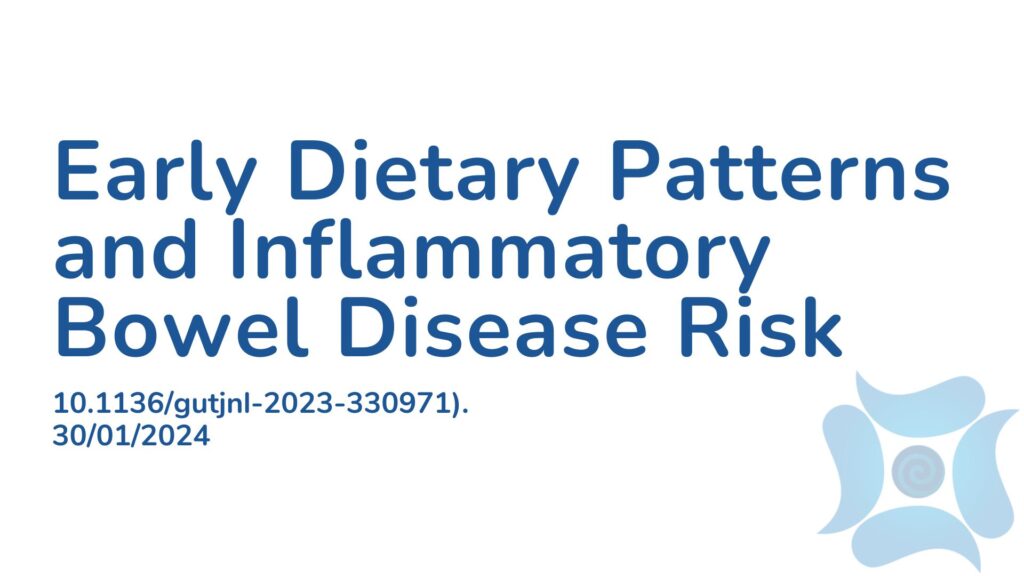This study aimed to investigate early-life dietary patterns and their link to inflammatory bowel disease (IBD) later in life. Data from questionnaires of children in Scandinavian cohorts were analyzed. Over 81,280 participants were followed, with 307 IBD cases. The results showed that higher diet quality at age 1 correlated with reduced IBD risk later in life, and that high fish intake at age 1 also lowered IBD risk, especially for ulcerative colitis. More vegetable intake at age 1 also reduced IBD risk, while sugar-sweetened beverages increased it. The authors concluded that early-life factors like high diet quality such as more vegetables and fish intake are associated with lower IBD risk in Scandinavian populations.
Abstract:
Objective: We assessed whether early-life diet quality and food intake frequencies were associated with subsequent IBD.
Design: Prospectively recorded 1-year and 3-year questionnaires in children from the All Babies in Southeast Sweden and The Norwegian Mother, Father and Child Cohort Study were used to assess diet quality using a Healthy Eating Index and intake frequency of food groups. IBD was defined as >2 diagnoses in national patient registers. Cox regression yielded HRs adjusted (aHRs) for child’s sex, parental IBD, origin, education level and maternal comorbidities. Cohort-specific results were pooled using a random-effects model.
Results: During 1 304 433 person-years of follow-up, we followed 81 280 participants from birth through childhood and adolescence, whereof 307 were diagnosed with IBD. Compared with low diet quality, medium and high diet quality at 1 year of age were associated with a reduced risk of IBD (pooled aHR 0.75 (95% CI=0.58 to 0.98) and 0.75 (95% CI=0.56 to 1.00)). The pooled aHR per increase of category was 0.86 (0.74 to 0.99). Pooled aHR for children 1 year old with high versus low fish intake was 0.70 (95% CI=0.49 to 1.00) for IBD, and showed association with reduced risk of UC (pooled aHR=0.46; 95% CI=0.21, 0.99). Higher vegetable intake at 1 year was associated with a risk reduction in IBD. Intake of sugar-sweetened beverages was associated with an increased risk of IBD. Diet quality at 3 years was not associated with IBD.
Conclusion: In this Scandinavian birth cohort, high diet quality and fish intake in early life were associated with a reduced risk of IBD.
Article Publication Date: 30/01/2024
DOI: 10.1136/gutjnl-2023-330971).




